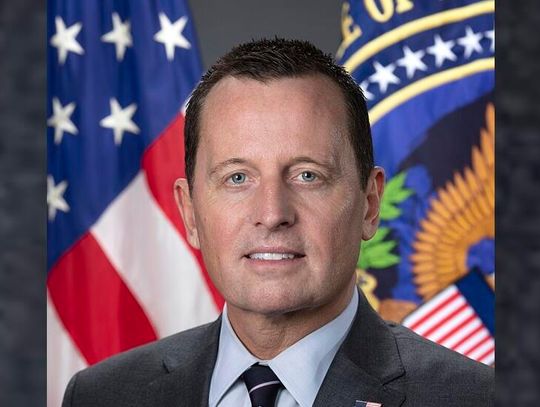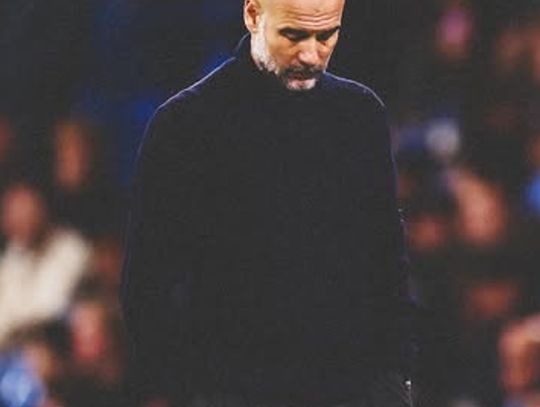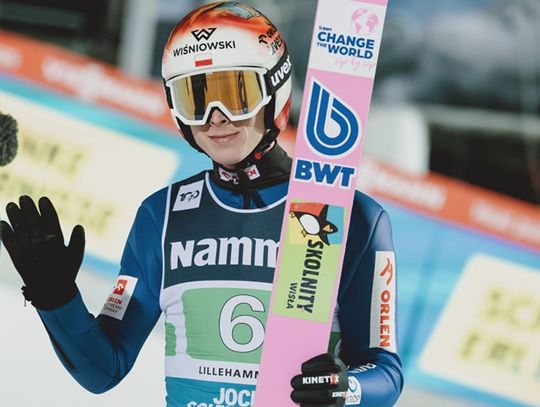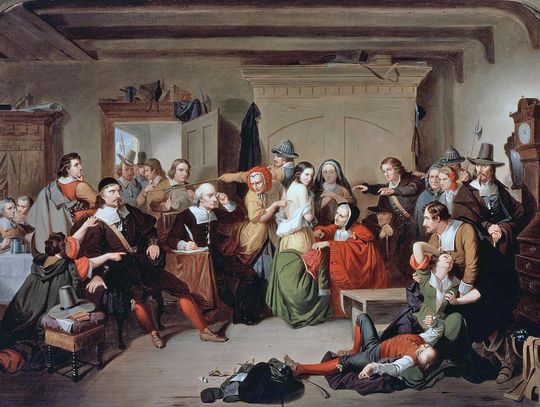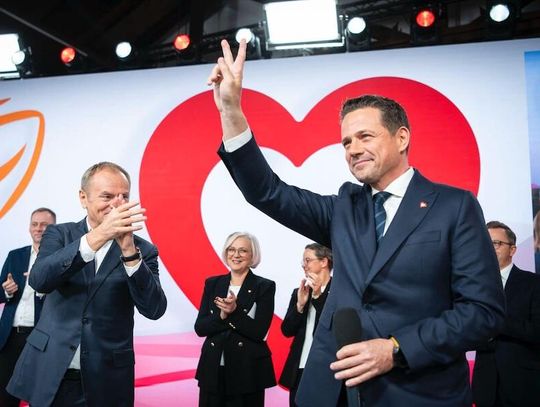Podobnie jak wy, jestem zmęczony wojną Putina przeciwko Ukrainie. Rozpoczęła się dwa miesiące temu w poniedziałek, 21 lutego, i wszyscy byli pewni, że zakończy się po kilku dniach. Rosja wydawała się nie do powstrzymania, wielka światowa potęga z niezliczoną możliwością niszczenia i zabijania, a Ukraina wyglądała na nieprzygotowaną i oszołomioną. Wszyscy oczekiwaliśmy, że wojna skończy się wraz z końcem tygodnia.
Ale wojna się nie skończyła i nic nie wskazuje na to, że koniec nastąpi wkrótce.
Każdego dnia otwieram gazetę, włączam wiadomości, zaglądam na media społecznościowe i słyszę o rosyjskich siłach nacierających tutaj i wycofujących się tam. Słyszę, że Ukraińcy robią rzeczy niewiarygodne, przeciwstawiają się Rosjanom i powoli spychają ich z powrotem do granic swojego kraju. Słyszę o wydaniu przez polski rząd 36-stronicowego przewodnika mówiącego Polakom, jak powinni przygotować się na ewentualną inwazję na Polskę i – co gorsza – możliwy atak nuklearny.
I słyszę coś więcej niż tylko to. Słyszę wiadomości, których nie chcę słyszeć. Słyszę o nieszczęściach, jakie ta wojna wyrządziła Ukraińcom.
Słyszę o zniszczonych budynkach we Lwowie i w Mariupolu, i w Kijowie, i w małych miejscowościach, o których nikt poza Ukrainą nigdy nie słyszał. Widzę zdjęcia matek, które niosą swoje dzieci przez gruzy zniszczonych ulic, babć, które siedzą na tych ulicach i płaczą oraz ojców, którzy wpychają swoje dzieci do autobusów, które miejmy nadzieję, uratują je, zabierając je do Katowic lub Lublina.
Słyszę to wszystko i zastanawiam się, o czym myślą Rosjanie. Czy są okłamywani przez swój rząd? Czy mówi się im, że nie ma wojny? Że rosyjscy żołnierze na Ukrainie są po prostu na przedłużonym pikniku i wrócą w swoje rodzinne strony, zanim róże zakwitną tego lata. A może Rosjanie znają prawdę, że ich naród jest narodem morderców, gwałcicieli i zabójców dzieci oraz matek, ojców i dziadków.
I wiem, że ta wojna się nie skończy, nawet jeśli dobiegnie do końca.
Dla tych, którzy byli na wojnie, doświadczyli jej brutalności, przetrwali jej cierpienie lub poddali się temu cierpieniu, wojna się nie kończy.
Wiem to, bo widziałem to w moich rodzicach. Oni byli nastolatkami, kiedy Niemcy napadli na Polskę i wyrządzili straszne rzeczy – krajowi oraz moim rodzicom, brutalnie zabijając ich rodziny i wysyłając ich do obozów pracy przymusowej w Niemczech.
Ze wspomnieniami wojny moi rodzice żyli całe swoje życie. Nigdy nie było nawet jednego dnia, żeby nie czuli na sobie psychicznych ran wojny. Pięćdziesiąt lat po wojnie ból strasznych rzeczy, których doświadczyli i widzieli, był ciągle z nimi.
I tak będzie z Ukraińcami i z nami, którzy obserwujemy tę wojnę.
The war goes on
Like you, I’m tired of hearing about Putin’s war against Ukraine. It started two months ago on Monday, February 21, and everyone was sure that it would be over within a few days. Russia seemed unstoppable, a major world power with unlimited ability to destroy and kill, and Ukraine seemed ill-prepared and in a daze. We all expected the war to be over by that weekend.
But the war didn’t stop, and there doesn’t seem any sign that it will stop any time soon.
Everyday, I open the paper and turn on the news and go on social media, and I hear about the Russian forces advancing here and pulling back there. I hear about the Ukrainians doing the unbelievable, standing up to the Russians and pushing them back slowly to the borders of their country. I hear about the Polish government issuing a 36-page guide telling Poles how they should prepare for a possible invasion of Poland and – what’s worse – a possible nuclear attack.
And I hear more than that. I hear the news that I don’t want to hear. I hear about the misery this war has caused for the Ukrainians.
I hear about the buildings destroyed in Lviv and Mariupol and Kyiv and little towns no one outside of Ukraine has ever heard of. I see footage of mothers carrying their babies through the rubble of destroyed streets, of grandmothers sitting in those streets weeping, of fathers pushing their struggling children into buses that will hopefully save them by taking them to Katowice or Lublin.
I hear all of this, and I wonder what the people of Russia are thinking. Are they being lied to by their government? Are they being told there is no war? That the Russian soldiers in Ukraine are simply on an extended picnic, and they will be back in their home towns before the first rose blooms this summer. Or do the Russian people know the truth that there nation is a nation of murderers and rapist and killers of children and their moms and dads and grandparents.
And I know that this war will not end even when it ends.
For those that have been in a war, suffered its brutality, endured its grief or succumbed to that grief, war does not end.
I know this because I saw it in my parents. They were teenagers when the Germans invaded Poland and did the terrible things to the country and to my mother and father that they did, brutalizing and killing their families and sending them to the slave labor camps in Germany.
My parents lived with these memories of the war all their lives. There was never a day that they didn’t carry the psychological wounds of the war with them. Fifty years after the war, the pain of the terrible things they experienced and saw was still with them.
And it will be like this for the Ukrainians and for those of us watching this war.
John Guzlowski
amerykański pisarz i poeta polskiego pochodzenia. Publikował w wielu pismach literackich, zarówno w USA, jak i za granicą, m.in. w „Writer’s Almanac”, „Akcent”, „Ontario Review” i „North American Review”. Jego wiersze i eseje opisujące przeżycia jego rodziców – robotników przymusowych w nazistowskich Niemczech oraz uchodźców wojennych, którzy emigrowali do Chicago – ukazały się we wspomnieniowym tomie pt. „Echoes of Tattered Tongues”. W 2017 roku książka ta zdobyła nagrodę poetycką im. Benjamina Franklina oraz nagrodę literacką Erica Hoffera za najbardziej prowokującą do myślenia książkę roku. Jest również autorem serii powieści kryminalnych o Hanku i Marvinie, których akcja toczy się w Chicago oraz powieści wojennej pt. „Retreat— A Love Story”. John Guzlowski jest emerytowanym profesorem Eastern Illinois University.-John Guzlowski's writing has been featured in Garrison Keillor’s Writer’s Almanac, Akcent, Ontario Review, North American Review, and other journals here and abroad. His poems and personal essays about his Polish parents’ experiences as slave laborers in Nazi Germany and refugees in Chicago appear in his memoir Echoes of Tattered Tongues. Echoes received the 2017 Benjamin Franklin Poetry Award and the Eric Hoffer Foundation's Montaigne Award for most thought-provoking book of the year. He is also the author of two Hank Purcell mysteries and the war novel Road of Bones. Guzlowski is a Professor Emeritus at Eastern Illinois University.




